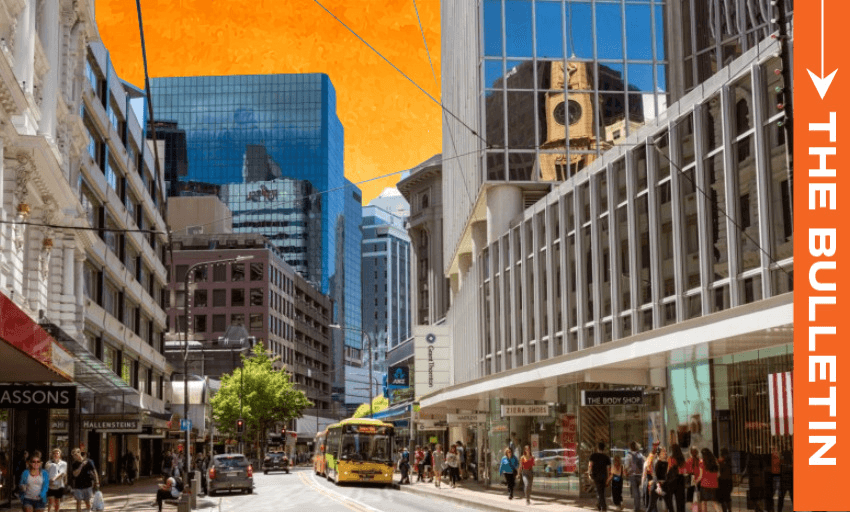The capital put on its best face this weekend, as hundreds of its residents braced themselves for the prospect of losing their jobs, writes Catherine McGregor in this excerpt from The Bulletin, The Spinoff’s morning news round-up. To receive The Bulletin in full each weekday, sign up here.
A grim weekend for Wellington public service workers
It was a beautiful weekend in Wellington, with thousands of locals descending on Cuba St to soak up the sun at the annual CubaDupa festival. But for many in the public sector it’s been a gloomy few days as they come to grips with the swingeing job cuts announced last week. Local Green MP Tamatha Paul told The Post the cuts would have “miserable” knock-on effects for the entire city. “The government is tanking our city by tanking our public service so that they can line the pockets of their rich landlord mates,” she said. Those made redundant can at least look forward to a healthy redundancy payment of around six months’ salary. As Stuff’s Bridie Witton reports, public sector redundancies will likely total well over $100 million – another hefty bill for a government currently facing an estimated $5.6 billion hole. For this cash-strapped government, a much lower salary bill in the long term is worth the short term pain of paying out millions in redundancies.
Making redundancies may be easier said than done
The view from inside the affected ministries is “chaotic”, reports the Herald’s Thomas Coughlan (paywalled). Staff at the Ministry of Business, Innovation and Employment (MBIE) say the agency is struggling to find roles to cut, with those putting their hands up for voluntary redundancy being routinely rejected because their jobs “are far too valuable to lose”. The “Frankenstein” agency, constructed from the 2012 merger of multiple departments and ministries, relies on a number of veteran staffers with an essentially irreplaceable skill set, Coughlan writes. MBIE “is responsible for maintaining a handful of crucial, ageing computer systems, which underpin crucial parts of the economy, like New Zealand’s groaning migration system.” According to an MBIE source, these increasingly decrepit systems “survive because of workarounds built upon workarounds, and the attention of technology specialists who have decades of experience working with them”.
Cut jobs now, to cut taxes later?
The job cuts are both a financial exercise and a political balancing act, writes Claire Trevett at the Herald (paywalled). “The government will be happy with where this has landed so far: the left’s argument that all those extra numbers in the public service are critical is not believable, while those further to the right say the cuts have not gone deep enough.” However, as shown by the controversy over restrictions on disability support, the “harder sell” will be cuts that affect voters beyond the beltway, which “look petty” or “affect the most vulnerable”. The Sunday Star-Times’ Andrea Vance is more critical of how the cuts have been handled. PM Chris Luxon’s message has been that the job cuts are necessary to help fund the planned tax cut package, but his “relentless focus on deadlines and delivering on promises” has made him blind to the political risks of ploughing ahead with cutting taxes, she writes (paywalled). “All the signs now point to [tax cuts] being too expensive, and too economically damaging to persist with.”
Hospitality sector caught in the crossfire
Planned mass redundancies in both the public and private sector come as a blow to the hospitality industry, the SST’s Aimee Shaw writes (paywalled). Central city hospo operators in Wellington and Auckland, particularly cafes, have been impacted over the past few years by the rise of remote working, and they’re also coping with the annual drop in footfall and turnover as autumn sets in. Now the industry must confront the prospect of large-scale layoffs and their impact on discretionary spending, says Hospitality NZ chief executive Steve Armitage. “The general sense is that foot traffic is going to be much harder to come by and businesses will start to shed staff,” he says.

